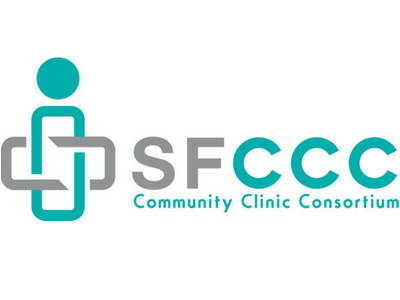REG at SFCCC (My Internship)—Blog Series 2 of 3
Equity in Vaccine Access and Distribution (Article 2)
For the second article, I’ll be writing about Vaccine Equity and what I’ve learned about the process while interning with the Consortium. In my first article, I mentioned my experience and my family’s experience with racism in healthcare. For many years, medical racism and a lack of healthcare equity have affected me personally and the Black community. Honestly, it comes as no surprise that COVID-19 infections and deaths have disproportionately hit black and brown people. It is also no surprise that it took some time to prioritize the black community for vaccine distribution. Instead of feigning shock at the discouraging nature of the situation, it is best to analyze what went wrong, why it happened, and how to fix it.
First, we know how badly the previous administration dropped the ball when it came to COVID-19 relief. From pulling the US out of the World Health Organization several months into the pandemic, all the way to repeatedly downplaying the importance of wearing a mask, the previous administration made fighting the coronavirus significantly more difficult. The former President eventually contracted the virus and only recovered thanks to medical professionals, which are not accessible to those disproportionately hit by COVID-19. It concerned me to see his negative perception of Dr. Fauci as cases rose. Simply put, I felt the previous administration never cared about COVID-19 except when they had to for publicity, and I believe that is why we are working overtime to get back to normal.
The former President aside, there is data to validate this unfortunate reality. For example, according to the COVID Racial Data Tracker, part of the COVID Tracking Project, “Nationwide, Black people have died at 1.4 times the rate of white people.” Furthermore, as of March 7, 2021 (they stopped collecting data after this point), “Black people account for 15% of COVID-19 deaths. There’s more data about state-to-state breakdowns on the COVID Racial Data Tracker. Between this evidence and repeated stories of often wealthy, white individuals stealing vaccines early (sometimes ones intended for communities of color), most of it just reinforces the same points we already know. The pandemic hit Black and brown communities the hardest, and this shows just how far we have to go towards promoting equity.
In addition to data, my family’s personal vaccine experience is evidence that there is a problem. My grandparents had difficulty getting their vaccinations, despite being older than the age eligibility in my state (Ohio). Recently, my parents, who are in their 50s, just qualified to get it; however, they had to call and check several locations for multiple days before finally getting an appointment. Unfortunately, the appointment was scheduled the following week and at a location out of the way from our home. Many people in communities of color cannot travel a long distance due to not owning a vehicle. At least, we have a working car and the time to go, but this shows why we have a long way to go towards actual vaccine equity efforts. There needs to be active outreach in these communities to help fix this disparity.
With all of this in mind, it is very frustrating to hear people (predominantly white individuals) blame Black and brown people for vaccine hesitancy and distrust of medicine as if they’re irrational. I’m getting the vaccine as soon as I can get access to it, but I cannot fault anyone who looks like me for apathy or fear at the prospect of getting one. Tuskegee is far from the only example of medical racism that most Black people recall when communicating their distrust of the government or healthcare. Governor Mike DeWine (OH) recently announced that anyone 16 years or older could get vaccinated if slots are available in Ohio, so that’s a good sign.
I’ve had my issues with his leadership, but President Biden is at the very least taking an active approach to combat health disparities related to COVID. Vaccine access has increased at a considerable rate nationwide. The Consortium has received a direct shipment of vaccines to distribute to the communities hardest hit by the virus. These essential steps are all thanks to President Biden’s changes and the advocacy of SFCCC and partner community clinics. These organizations have emphasized the critical role community clinics play in creating vaccine equity. If all goes well, equitable vaccine distribution will continue across the country, and there will be more positive trends to look forward to soon. Hopefully, we can see an increase in vaccinated Black and brown individuals and more direct outreach to those people soon.

